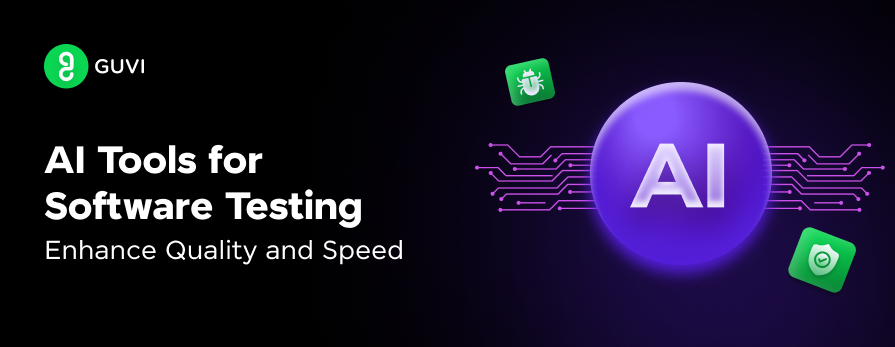
AI Tools for Software Testing: Enhance Quality and Speed
Oct 24, 2024 7 Min Read 1330 Views
(Last Updated)
Software development is not only restricted to developing software. It also involves testing which is a crucial part of development.
This role requires careful consideration and to make that job easy, there are several AI tools for software testing. We are going to see about those AI tools in this article.
These AI tools have been segregated on basis of their feature and compatibility with devices. By the end of this article, you will be equipped with considerable amount of knowledge required to choose the best AI tool for software testing!
So, let us get started!
Table of contents
- Top 10 AI Tools for Software Testing– Overview
- Best AI Tools for Software Testing
- Testim
- Applitools
- Katalon Studio
- Functionize
- Mabl
- Turing Bot
- ACCELQ
- Testrigor
- Selenium AI
- Code Intelligence
- Conclusion
- FAQs
- How do AI testing tools differ from traditional software testing
- How do AI tools improve test automation?
- How does code scanning ability work in AI tools?
- Are AI tools suitable for all types of software testing?
- Can AI testing tools integrate with existing testing frameworks?
Top 10 AI Tools for Software Testing– Overview
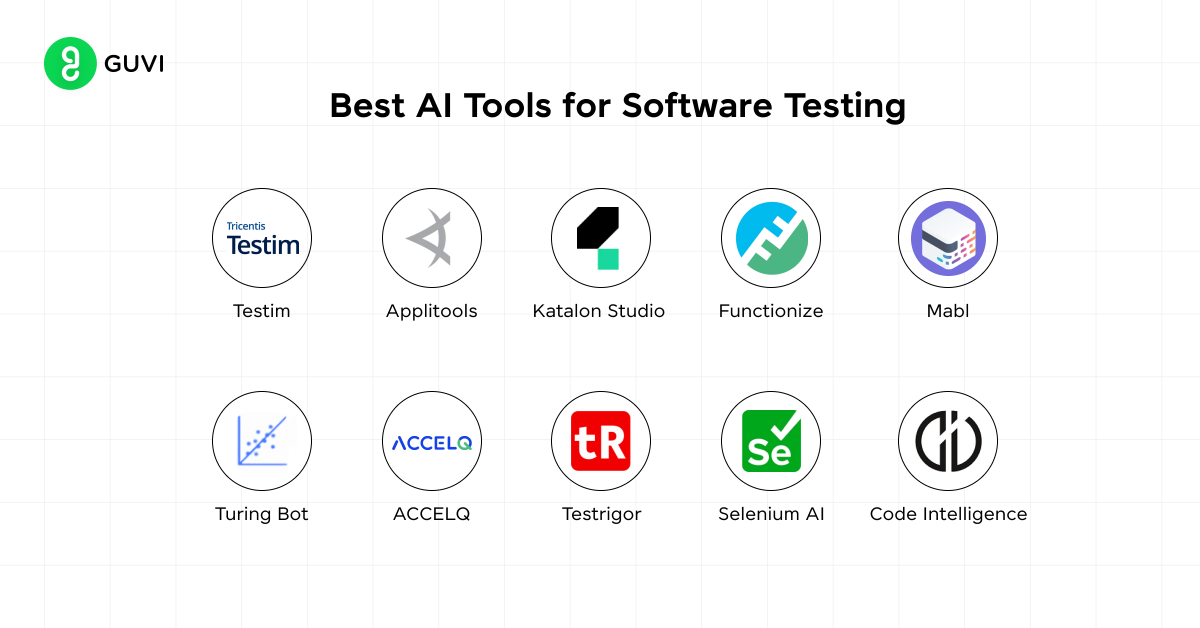
Here’s an overview of the top 10 AI tools for Software Testing:
| S.No. | Tool Name | Features | Compatibility | Ease of Integration | Access Now |
| 1 | Testim | Self-healing tests, Smart locators | Web, Mobile | Very Easy | Try Now |
| 2 | Applitools | Visual AI, Cross-browser testing | Web, Mobile | Medium | Try Now |
| 3 | Katalon Studio | End-to-end testing, AI-enhanced object recognition | Web, Mobile, API | Very Easy | Try Now |
| 4 | Functionize | Autonomous test creation, Machine learning capabilities | Web, Mobile | Very Easy | Try Now |
| 5 | Mabl | Intelligent test insights, API testing | Web, Mobile, API | Very Easy | Try Now |
| 6 | Turing Bot | Natural language test generation, Scriptless testing | Web, Mobile | Medium | Try Now |
| 7 | ACCELQ | Test automation and management, AI-based visual testing | Web, API | Very Easy | Try Now |
| 8 | Testrigor | No-code test automation, AI-driven testing | Web, Mobile, API | Very Easy | Try Now |
| 9 | Selenium AI | AI-enhanced Selenium for smarter automation | Web | Medium | Try Now |
| 10 | Code Intelligence | Fuzz testing, AI-based vulnerability detection | Web, Mobile | Medium | Try Now |
Best AI Tools for Software Testing
The above-mentioned 10 AI tools for software testing are some of the best in the market and to understand them better, here is a detailed explanation of what each will do:
1. Testim
Testim is a leading AI-based testing tool designed to simplify the test creation and maintenance process.
With its self-healing tests and smart locators, Testim adapts to UI changes, reducing the burden of manual maintenance on developers and QA teams.
Core Features:
- Self-Healing Tests: Automatically adjusts to changes in the code or UI, reducing the need for manual updates.
- Smart Locators: Uses AI to identify elements even when UI elements change.
- Test Authoring: Provides both code and codeless test authoring to suit developers and non-developers.
Ease of Use: Testim offers an intuitive user interface with drag-and-drop test creation, making it ideal for testers with minimal coding knowledge.
Ease of Integration: Seamlessly integrates with popular CI/CD pipelines like Jenkins, GitHub Actions, and CircleCI, ensuring automated tests can run with every build.
Supported Testing Types: Functional, regression, and UI testing.
Platform Compatibility: Works on web and mobile platforms.
Pricing: Offers tiered pricing plans based on project size, with a free trial available. Contact for a detailed pricing list.
Expert View: “Testim.io, a cloud-based platform that empowers testers with efficient test case authoring, maintenance, and execution without the need for extensive coding expertise.” (By Eleonora Belova through Medium)
User Rating: Rated 4.5/5 by G2.
Pros & Cons:
- Pros: Excellent for reducing test maintenance and handling UI changes.
- Cons: The advanced AI features might take some time to master for beginners.
Use Case: Testim is ideal for teams managing large, frequently updated applications, where constant UI changes require robust, self-healing test automation.
Try Now: Testim.io
2. Applitools
Applitools is a visual testing tool that leverages Visual AI to provide unmatched accuracy in cross-browser and cross-device testing.
It ensures that your application’s visual elements are pixel-perfect across all platforms.
Core Features:
- Visual AI: Uses advanced AI algorithms to detect even the smallest visual differences across different browsers and devices.
- Cross-Browser Testing: Automatically runs tests on multiple browsers and devices to ensure compatibility.
- Seamless Integration: Works well with existing automation frameworks like Selenium, Cypress, and Appium.
Ease of Use: Applitools is known for its ease of use, with minimal setup and a user-friendly interface.
Ease of Integration: Integrates smoothly with popular automation frameworks and CI/CD tools like Jenkins, GitHub, and CircleCI.
Supported Testing Types: Visual, functional, and regression testing.
Platform Compatibility: Compatible with web and mobile platforms.
Pricing: Custom pricing based on user needs, with a free trial available.
Expert View: “Our business has used Applitools for over 2 years now and have peace of mind knowing our application’s testing is in good hands” – An Expert View on Capterra
User Rating: Rated 4.7/5 by Gartner.
Pros & Cons:
- Pros: Excellent for visual regression testing; integrates easily with existing workflows.
- Cons: Focuses primarily on UI/UX testing, so it might not be suitable for back-end testing.
Use Case: Applitools is perfect for teams focused on front-end development, ensuring their application’s visuals are consistent across all browsers and devices.
Try Now: Applitools
3. Katalon Studio
Katalon Studio is an all-in-one test automation platform that supports end-to-end testing across web, mobile, API, and desktop applications. It offers AI-enhanced features like intelligent object recognition, which helps improve test reliability and stability.
Core Features:
- AI-Enhanced Object Recognition: Katalon Studio uses AI to identify and handle dynamic UI elements, reducing test maintenance and flakiness.
- End-to-End Test Automation: Supports functional, regression, load, and API testing, covering multiple platforms.
- Scriptless Test Creation: Provides a codeless testing environment for non-technical users, alongside scripting options for developers.
- Built-in Reporting and Analytics: Offers comprehensive test reports and insights to help you track the performance of your tests.
Ease of Use: Katalon Studio is known for its ease of use, the drag-and-drop interface is highly intuitive, making test creation quick and simple.
Ease of Integration: It integrates seamlessly with CI/CD pipelines and popular tools like Jenkins, Git, JIRA, and Docker. Katalon also supports integrations with test management tools like qTest, TestRail, and Zephyr.
Supported Testing Types: Supports functional, regression, API, mobile, and UI testing, along with load testing capabilities.
Platform Compatibility: Compatible with web, mobile, API, and desktop applications across Windows, macOS, and Linux.
Pricing: Katalon Studio offers a free version with limited features, along with paid plans that start at 14,700 INR/month.
Expert View:
“Katalon Studio uniquely caters to both novice and experienced testers by offering a dual-scripting interface that allows users to create tests through manual steps or by scripting, employing a user-friendly manual mode and a more advanced scripting mode.” – The CTO Club
User Rating: Rated 4.4/5 by Gartner.
Pros & Cons:
- Pros: Wide range of testing capabilities, AI-driven object detection, and codeless test creation for non-technical users.
- Cons: The free version has limited features, and advanced users may find the codeless interface restrictive.
Use Case: Katalon Studio is perfect for teams looking for a unified testing solution that handles multiple platforms (web, mobile, API, and desktop) and offers AI-enhanced features like intelligent object recognition.
Try Now: Katalon Studio
4. Functionize
Functionize combines machine learning and natural language processing to simplify and accelerate the test automation process. With autonomous test creation and optimization, it reduces the time spent on manual test scripts.
Core Features:
- Autonomous Test Creation: Automatically generates test cases using machine learning.
- Machine Learning Optimization: Uses AI to optimize test cases and make them more efficient.
- Cloud-Based Infrastructure: All tests are run in the cloud, ensuring fast execution times.
Ease of Use: Easy to use with a clean, intuitive interface that doesn’t require extensive coding skills.
Ease of Integration: Works seamlessly with CI/CD tools like Jenkins, Jira, and Slack.
Supported Testing Types: Regression, load, and functional testing.
Platform Compatibility: Compatible with both web and mobile platforms.
Pricing: Request for pricing.
Expert View:
“They have been great to work with. They have been there for us from the start and offered options that fit our needs perfectly. They are spot on with any assistance that we may need.” – Gartner
User Rating: Rated 4.4/5 by G2.
Pros & Cons:
- Pros: Great for large enterprises that need to scale their test automation.
- Cons: Not as feature-rich for smaller teams or projects.
Use Case: Functionize is best suited for large teams that require extensive test automation, especially for complex applications with frequent updates.
Try Now: Functionize
5. Mabl
Mabl is a unified AI-driven testing platform that offers intelligent automation for functional, regression, and API testing. It provides detailed insights and analytics, helping teams track performance and spot issues early.
Core Features:
- Intelligent Test Automation: Automates functional and regression tests with AI.
- API Testing: Integrates API testing into your automation workflows.
- Advanced Analytics: Provides detailed insights into test results, performance, and bottlenecks.
Ease of Use: Mabl is easy to use, with comprehensive documentation and tutorials to help teams get started quickly.
Ease of Integration: Easily integrates with popular CI/CD tools like Jenkins, GitHub, and Bitbucket, making it suitable for agile teams.
Supported Testing Types: Functional, regression, and API testing.
Platform Compatibility: Compatible with web, mobile, and API platforms.
Pricing: Custom pricing based on usage, with a free trial available.
Expert View:
“As a professional well-versed in test automation software, I find Mabl to be a strong contender in its field. Its integration of machine learning for test automation is particularly impressive, offering a significant reduction in maintenance time.” – The CTO Club
User Rating: Rated 4.5/5 by G2.
Pros & Cons:
- Pros: Excellent for API and functional testing; great for agile teams.
- Cons: Pricing can be a bit high for smaller teams.
Use Case: Mabl is ideal for teams that need both API and functional testing in one unified platform, especially those practicing agile development.
Try Now: Mabl
6. Turing Bot
TuringBots offers scriptless AI-driven test automation, allowing teams to generate tests by simply using natural language descriptions. It’s designed to simplify the testing process for non-developers while still offering powerful capabilities for more advanced users.
Core Features:
- Natural Language Test Generation: Create test scripts by typing simple natural language instructions.
- Scriptless Automation: No coding skills are required to create and maintain tests.
- AI-Based Test Optimization: Automatically optimizes tests to enhance performance and coverage.
Ease of Use: The scriptless interface makes it incredibly easy for non-technical users to create tests, while the natural language processing (NLP) capabilities streamline the process for advanced users.
Ease of Integration: Works well with CI/CD pipelines, including Jenkins, GitLab, and Bamboo.
Supported Testing Types: Functional, regression, and load testing.
Platform Compatibility: Supports web and mobile platforms.
Pricing: Custom pricing is available based on team size, with a free trial.
Expert View:
“TuringBots, with their ability to operate behind the scenes with other TuringBots and collaborate with humans, will become an indispensable ally”. – Forbes
Pros & Cons:
- Pros: Perfect for teams with mixed technical expertise; no need for coding skills.
- Cons: Limited to functional and regression testing, may lack more advanced features.
Use Case: TuringBots is great for teams with limited technical expertise who need to automate functional tests quickly and efficiently.
Try Now: Turing Bot
7. ACCELQ
ACCELQ is an AI-powered test automation platform that integrates both test management and execution into a single, unified solution.
It offers codeless automation with AI-based visual testing, making it a robust tool for teams looking for an end-to-end solution.
Core Features:
- AI-Based Visual Testing: Automates visual testing with the power of AI.
- Codeless Test Automation: Allows teams to create tests without writing any code.
- Test Management: Offers built-in test management capabilities to track and maintain tests.
Ease of Use: ACCELQ’s codeless automation and intuitive interface make it easy for teams to get started quickly without a steep learning curve.
Ease of Integration: Integrates seamlessly with CI/CD pipelines and tools like Jenkins, Azure DevOps, and JIRA.
Supported Testing Types: Functional, visual, API, and regression testing.
Platform Compatibility: Supports web, mobile, and API platforms.
Pricing: Offers flexible pricing plans with a free trial available.
Expert View:
“Overall, I have had an outstanding experience with AccelQ. Their support is top-notch, quick to reply, and help with any issues that arise.” – GetApp.com
User Rating: Rated 4.8/5 by G2.
Pros & Cons:
- Pros: End-to-end test automation and management; no coding required.
- Cons: May not offer as many customization options for advanced users.
Use Case:
Ideal for teams looking for a comprehensive test automation solution that includes both visual and API testing.
Try Now: ACCELQ
8. Testrigor
Testrigor stands out as a no-code test automation tool powered by AI. Its AI-driven testing capabilities help you build robust tests without writing any code, making it a great option for teams who need fast and easy automation solutions.
Core Features:
- No-Code Automation: Create tests without writing any code.
- AI-Driven Test Creation: Automatically generates tests based on user behavior and actions.
- Cross-Platform Testing: Supports testing on web, mobile, and API applications.
Ease of Use: Testrigor is built with non-technical users in mind, offering a simple interface and intuitive test creation process.
Ease of Integration: Integrates well with tools like Jenkins, GitHub, and Slack, making it easy to fit into your existing CI/CD workflows.
Supported Testing Types: Functional, regression, and API testing.
Platform Compatibility: Compatible with web, mobile, and API platforms.
Pricing: Subscription pricing available, with a free trial offered.
Expert View:
“Drawing from my expertise in test automation, testRigor offers a compelling mix of accessibility and power. It stands out with its natural language approach, bridging the gap between technical and non-technical stakeholders.”- The CTO Club
User Rating: Rated 4.6/5 by G2.
Pros & Cons:
- Pros: No coding required, easy to use for non-technical users.
- Cons: May not be suitable for highly complex test cases.
Use Case:
Best suited for teams that need to automate simple to moderate test cases without needing advanced coding skills.
Try Now: Testrigor
9. Selenium AI
Selenium AI enhances the popular open-source Selenium framework with AI capabilities. It brings AI-powered locators and smart waits, making Selenium tests more reliable and faster to execute.
Core Features:
- AI-Powered Locators: Uses AI to locate elements on a page, reducing flakiness in tests.
- Smart Waits: Automatically adjusts wait times based on page load speeds, improving test efficiency.
- Seamless Selenium Integration: Fully compatible with existing Selenium tests.
Ease of Use: If you’re already familiar with Selenium, using Selenium AI will feel seamless. If not, enroll in a Selenium Course and learn everything about it.
Ease of Integration: Works natively with Selenium and integrates easily with CI/CD tools like Jenkins and CircleCI.
Supported Testing Types: Functional, UI, and regression testing.
Platform Compatibility: Supports web platforms.
Pricing: Open-source with optional paid services for enterprise users.
Expert View:
“It is the best ever software testing tool. It offers a wide range of interesting options for debugging. Also, it gives you excellent recording capabilities so that you can keep your records secure enough.” – Softwarereviews.com
User Rating: Rated 4.5/5 by G2.
Pros & Cons:
- Pros: Builds on the well-established Selenium framework, adding AI to enhance reliability.
- Cons: Limited to web testing; requires Selenium knowledge to implement.
Use Case:
Best for teams already using Selenium who want to enhance their test stability and reliability with AI.
Try Now: Selenium AI
10. Code Intelligence
Code Intelligence focuses on automated fuzz testing and vulnerability detection using AI.
It’s an excellent choice for security-conscious teams that want to find and fix vulnerabilities in their code early in the development process.
Core Features:
- Fuzz Testing: Automatically generates and executes tests to identify potential vulnerabilities in code.
- AI-Based Vulnerability Detection: Uses AI to scan for security vulnerabilities and bugs.
- Smart Test Generation: Automatically creates test cases based on code structure and usage patterns.
Ease of Use: While Code Intelligence is designed for security experts, its AI-powered features make it easy to set up and run fuzz tests even for non-security professionals.
Ease of Integration: Integrates with popular CI tools like Jenkins and GitHub for continuous testing.
Supported Testing Types: Security, functional, and load testing.
Platform Compatibility: Supports web and mobile platforms.
Pricing: Custom pricing based on enterprise needs, with a free trial available.
Expert View:
“Great tool for development teams. The CI Fuzz delivers on its promises. The CI team is a professional one starting with sales and finishing with development and support.” – Gartner
Pros & Cons:
- Pros: Excellent for security testing; automatically finds and fixes vulnerabilities.
- Cons: Focused primarily on security; may not be suitable for general test automation.
Use Case: Ideal for security-focused teams that need to detect and fix vulnerabilities early in the development process.
Try Now: Code Intelligence
That’s it for our list of top 10 AI tools for software testing. We hope you have gained some insight into the fusion world of AI and software testing!
In case you want to learn more about software testing with the help of Selenium, consider enrolling for GUVI’s Selenium Automation Testing Course that teaches you everything from scratch and provides you with an industry-grade certificate!
Conclusion
In conclusion, AI tools are redefining the software testing world by offering faster, smarter, and more efficient ways to ensure your applications are error-free.
Whether you need robust functional testing or detailed visual analysis, there’s an AI tool for your needs. The best AI tools for software testing simplify the process, reduce manual effort, and enhance test coverage.
Choose the right tool based on your project requirements, budget, and team expertise, and elevate your testing game!
FAQs
1. How do AI testing tools differ from traditional software testing
AI tools use machine learning and intelligent algorithms to automate testing, while traditional methods rely on manual scripts and human intervention.
2. How do AI tools improve test automation?
AI tools optimize test cases by learning from previous tests, reducing redundancies, and improving test coverage with minimal human input.
3. How does code scanning ability work in AI tools?
AI-powered code scanning tools detect vulnerabilities and bugs by analyzing the source code and identifying potential issues before they reach production.
4. Are AI tools suitable for all types of software testing?
AI tools are highly versatile and can be used for many types of software testing, including functional, regression, UI, API, and load testing. However, the suitability depends on the specific tool and its features.
5. Can AI testing tools integrate with existing testing frameworks?
Yes, most AI testing tools are designed to integrate seamlessly with existing testing frameworks and CI/CD pipelines. Many tools offer out-of-the-box integrations with popular frameworks like Selenium, Appium, Jenkins, GitHub, and CircleCI.






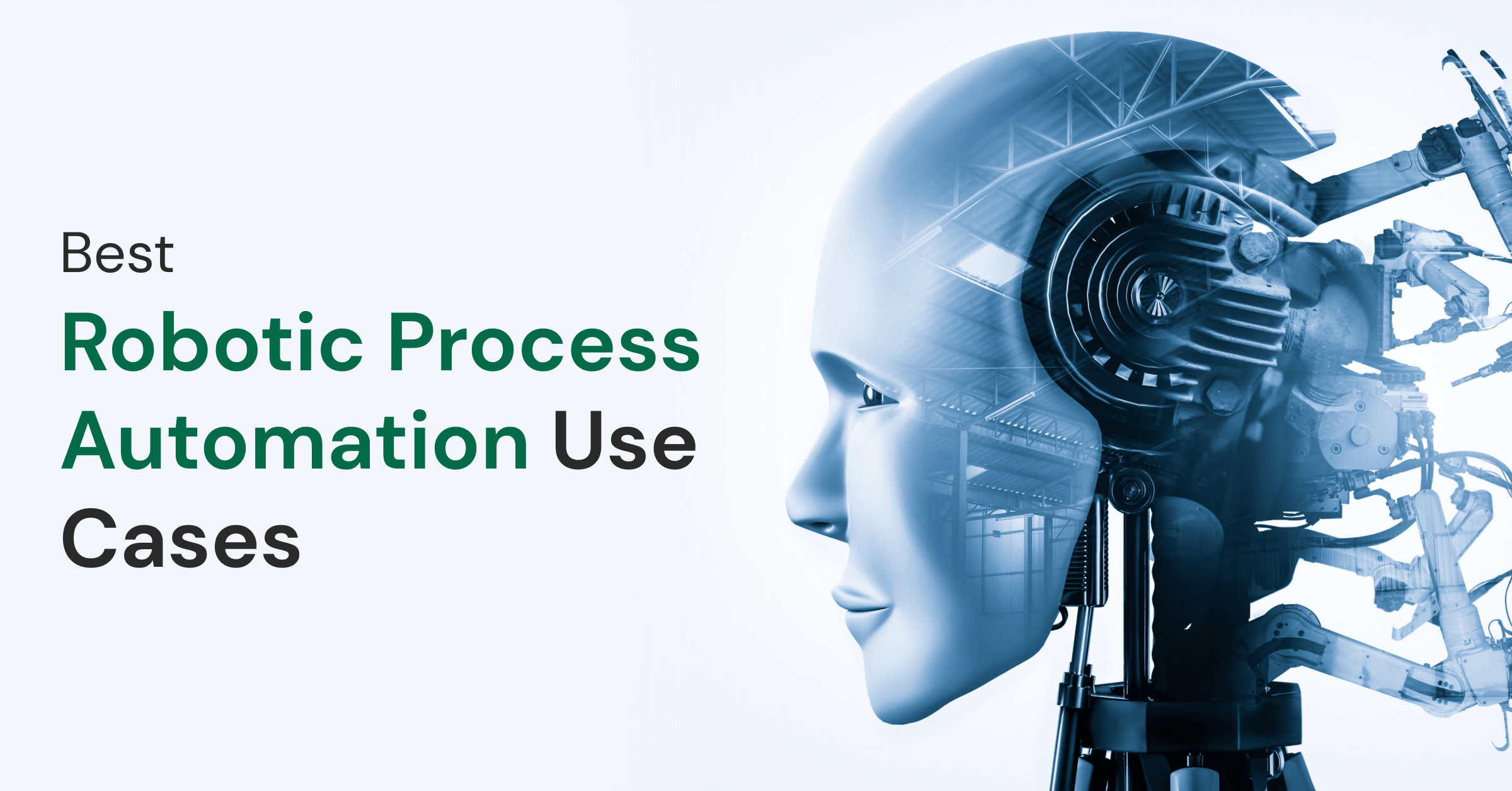
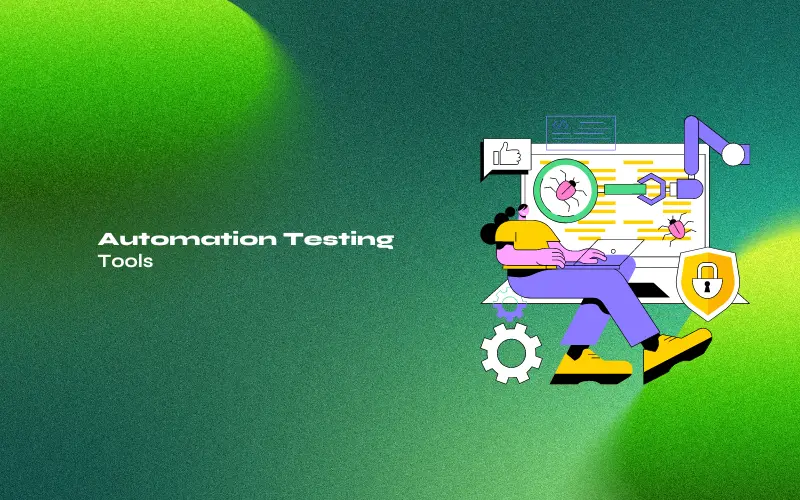


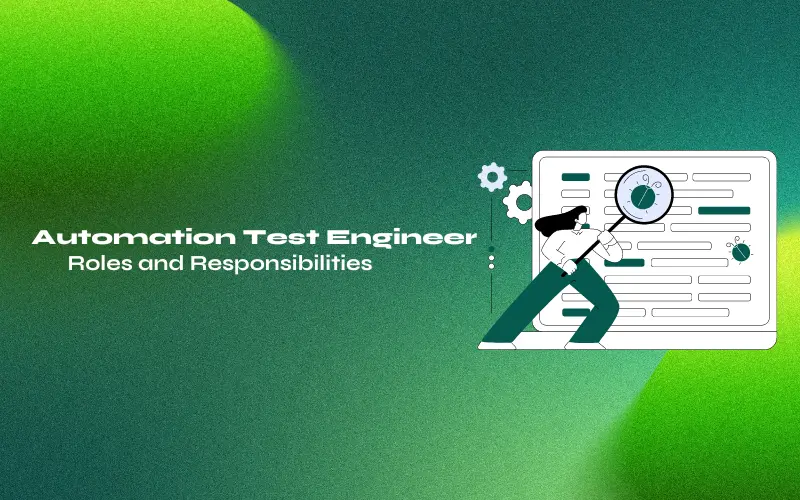
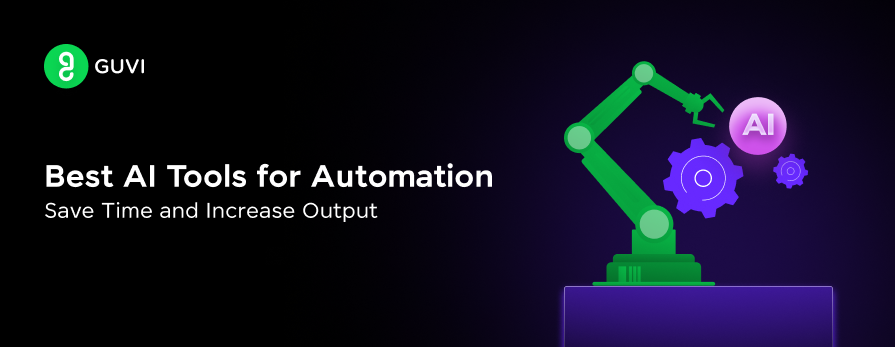
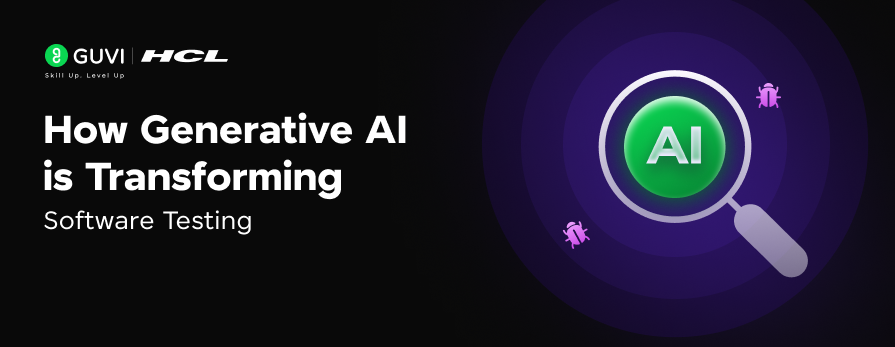

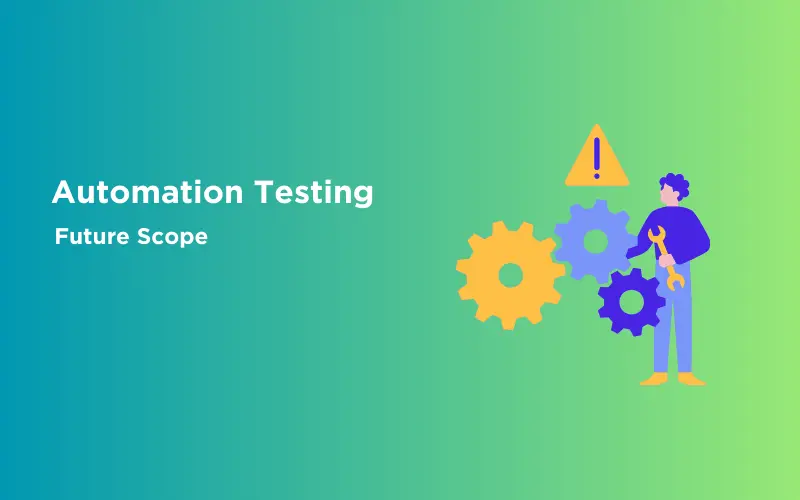
Did you enjoy this article?